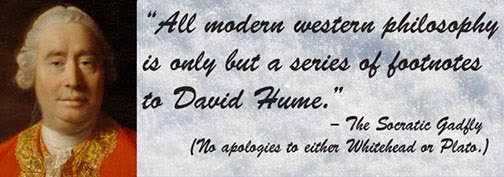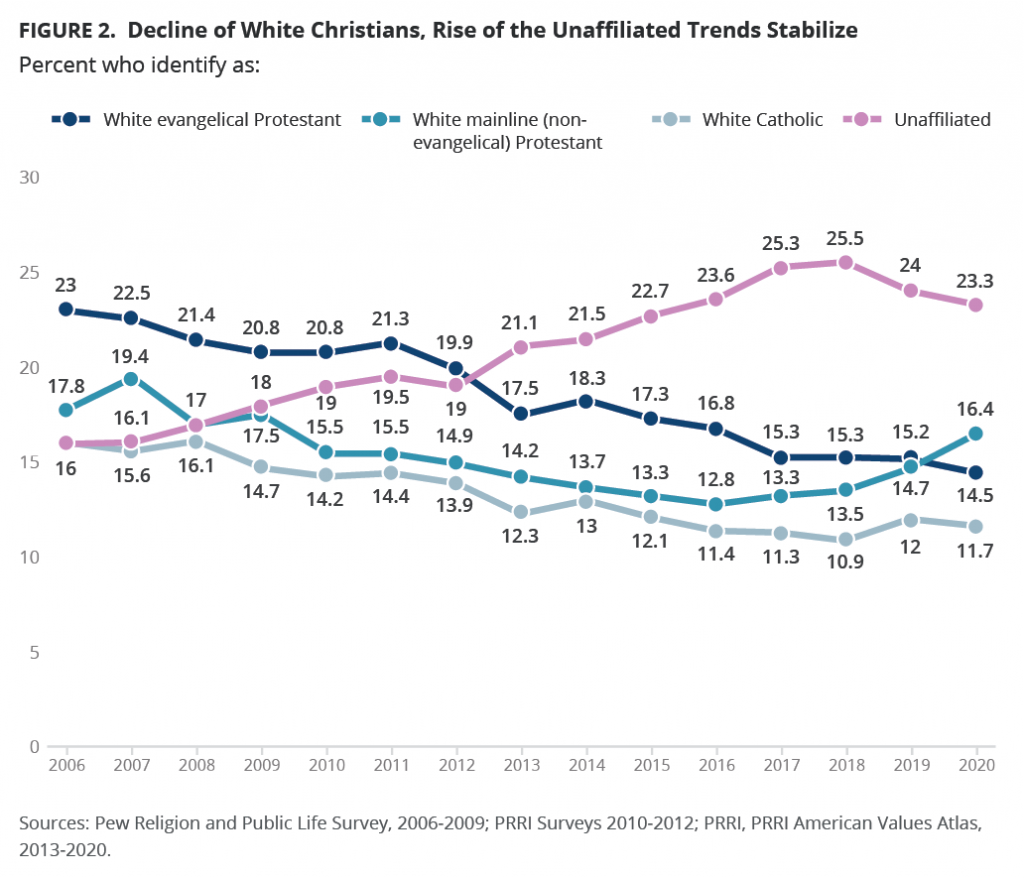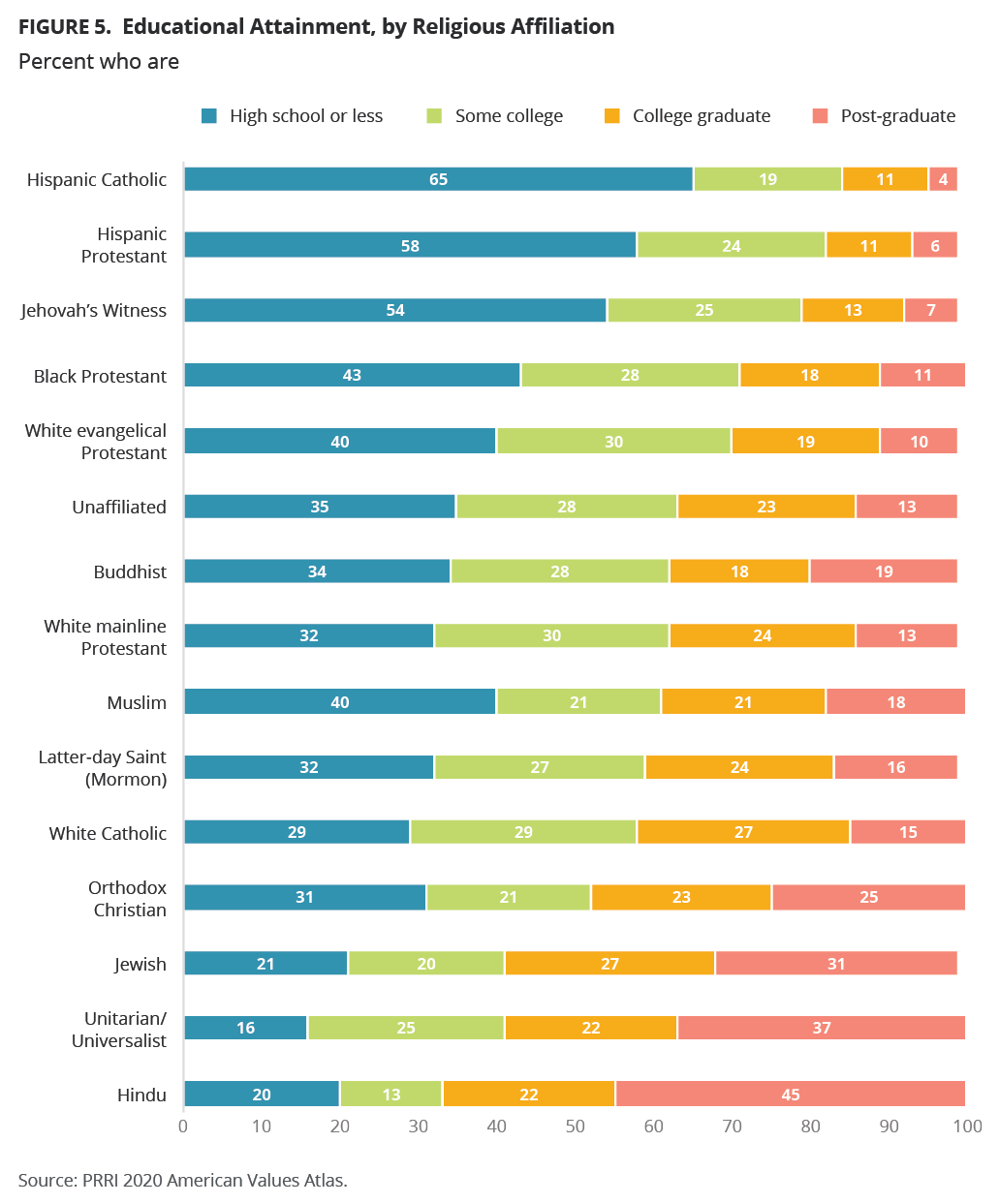Via Pocket,
I saw this Nautilus piece, written by Steve Paulson, that at first looked very interesting.
British anthropologist Whitehouse, who has been to hunter-gatherer or mixed subsistence cultures in places like New Guinea, talked about how the power of rituals, especially initiation rituals, and their creation of social bonds, are a key item to the development of religion.
Sounded interesting. That's definitely the case as he further discussed the sociological aspects of this.
Until ... he went wrong.
He first went wrong with the word "transcendence," which he seemed to use even more loosely than Rudolf Otto's "numinous," and which, like the word "ineffable," comes off in his account as "anything that seems unexplainable." So, at that point, we've moved kind of New Agey. (Hold on to that thought.)
That was bad enough, until he went really wrong.
He claimed that footy (football, in the UK) fandom was itself a religion. Oh, wrong, wrong, Not.Even.Wrong. And, not just about footy, but US football or any other sport.
And, I suppose we're at the point of needing to offer my definition of religion.
First, I agree that religion is a group, sociological and social psychology function.
Second, rituals in general and initiation rituals in particular, may be part of religion's coherence. (Etymologists still debate whether or not the word comes from the Latin "religere," which means "to tie together.")
But, that's where we part company.
My definition of religious starts in the world of philosophy, where he seems not to visit, per the story:
Whitehouse directs the Institute of Cognitive and Evolutionary Anthropology at Oxford University. For years he’s been collaborating with scholars around the world to build a massive body of data that grounds the study of religion in science. Whitehouse draws on an array of disciplines—archeology, ethnography, history, evolutionary psychology, cognitive science—to construct a profile of religious practices.
And, that means that right there, he's going to be lacking, IMO. (I also wonder if, or fear that, "evolutionary anthropology" could wind up coming off like some of the current worst of "evolutionary psychology," but that will be a blog post or three for another time, if necessary. OTOH, it may be something like Scott Atran, who Wiki says, on its Whitehouse page, helped found another institute at Oxford with him. I digress.)
My definition, which I think I've uttered here before, is something like this.
Religion is about:
Metaphysical matters of ultimate concern, within a social group setting; and
How one orients oneself within that group to a better relationship to these metaphysical matters of ultimate concern.
First, note that "metaphysical" shows we're clearly into philosophy. It means something that "transcendence" does not.
Second, note that "of ultimate concern" shows we're not talking about footy fandom. UK fans who would believe that they can conduct magic rituals to revive the career of a current player, let alone actually revive a dead star of the past, would be considered mentally ill by psychologists, and ministers, and presumably by Whitehouse.
Third, note that I did NOT say "god," or "deity/-ies" or "divinity/-ies."
This means that Theravada Buddhists who do not believe in a personal deity are still part of a religion. They ARE, Stephen Batchelor, Robert Wright, and Buddhism flirter John Horgan. I also did NOT say "soul." Western monotheisms, and generally Hinduism, believe in some sort of personal soul, as in "your immortal soul," in the Western tradition, but Theravada claims to believe only in a "life force."
And, "karma."
To put it another way, Tottenham fans have not devised a god called "Spurs," have not devised a karma about relegation, have not recruited a community to believe this, and have not developed a cultus of worship, prayers, etc.
Rabid fandom is an "-ism," like Nazism or Communism. Neither of those is a religion, either.
And, that leads us to point the second, of the two main parts of my definition.
Karma is itself a metaphysical entity throughout Hindu and Buddhist belief, and basically similar among Jains, from what I know. Given that these religions claim one can be reincarnated as a piece of shit, or more literally, a dung beetle eating that shit, without knowing what one did wrong in a past life, or, per Theravada, even having a personal soul from a past life that COULD remember, is why I've said that karma is more offensive than original sin, following on an earlier post. But I digress.
Anyway, ethical actions, and beliefs and doctrines, are, as defined by the religious-sociological group (that's how religion is not individual) are how one "orients oneself to a better relationship" with these metaphysical entities, whatever they are in that religion. (Buddhism and Judaism have doctrines as well as ethical practice, as I said before,
let's not pretend otherwise, it's called "orthodoxy" vs "orthopraxis"
in philosophy of religion and critical religion, and refusal to accept
that is stereotyping.) Speaking of that, Whitehouse himself, per this "modes of religiosity" Wiki page, differentiates between what he calls "imagistic" vs "doctrinal" systems. Frankly, seeing that he's also missing scholars of religion and philosophers of religion from that institute, I think this is poor language usage. It's also not good division, per a follow-up to my "as I said before"; for many a Catholic, the ringing of the transubstantiation bell is NOT Pavlov's dog, which IS what it reminds me of, nor just doctrinal, but is "imagistic," aural division. The elevation of the host certainly is imagistic. I could also mention Catholic Penitentes, Protestant "holy rollers" and "speaking in tongues," Shi'ite flagellators and more.
Wiki then mentions a "cognitive science of religion," which has Whitehouse and another, like Atran, long-ago read, Pascal Boyer, mentioned. Cognitive science has in the past offered some insight for philosophy and probably can for religion, but its devotees often overrate it, too. That's especially true if, per Wiki, these ideas originate in ev psych. And, thus, my original worries about Whitehouse's evolutionary anthropology gain more foothold.
Yes, human psychology evolved; as a scientific and philosophical naturalist, I totally accept that. But, modern ev psych as a discipline, with its pseudoscience, sexist ideas and more? I reject.
And, with that, I'm more than done with Whitehouse.
Final sidebar note. If you claim to be "spiritual but not religious," but still follow religious leaders on social media, though not going to a church or temple, you're religious. If you claim to be "spiritual but not religious," but attend a Wiccan coven or a neo-Druid gathering? You're religious.
Actually, second sidebar note: Whitehouse reminds me a lot of James Harrod and his claim that chimps are religious, debunked by me here.



